We can all relate in some way, to being in a relationship that doesn’t serve us. That can be not just with a partner or spouse but can be with a relative, friend, your boss, or co-worker. From a positive psychology perspective, having good, strong ‘positive’ relationships in our lives impacts of our levels of happiness and ultimately quality of life. How these relationships play out will ultimately influence different aspects of our emotional and mental health, so it’s important for our wellbeing to have positive relationships in our lives. But how can we spot the signs of when a relationship is not good for us and is toxic?
Relationships are central to most people’s lives. We are social animals, and we rely on others for care, love, laughter, a shoulder, for confidence and so on. And it’s rarely possible to have a relationship with another person that is always rosy, and some relationships will need more work than others. But the skill is engaging in and nurturing in positive relationships, which will ultimately help create what the co-founder of Positive Psychology, Martin Seligman, calls the ‘good life’ enhancing our wellbeing.
For relationships to truly work, it must be a two-way street. We need to look at ourselves to recognise what we add to build the relationship positively, and equally what good things come back to us by being in that relationship.
It’s the second part that many of us fail to notice, especially when we feel strongly for the other person. We can often get tunnel vision, and sometimes we fail to realise the relationship is no longer good for us, our mental health and wellbeing, and in some instances has become ‘toxic’.
And arguments and disagreements in relationships are common. However, if you fail to spot the important red flags and what was once your ‘non-negotiable deal breakers’, once you are in the relationship, it’s always important, when you feel in your gut that things aren’t right (and we all know that familiar feeling), that you check back in with yourself to ensure that the relationship is still serving you as much as it is the other person.
For many of us, it can be difficult to acknowledge when a relationship has become toxic, especially when you have been in it for a long time, and you have become accustomed to their behaviour. But it’s important to recognise when a relationship is damaging to you.
Common signs to watch out for include:
- Your relationship has made you lose your confidence, self-worth, and self esteem you walk on eggshells because you are worried about the backlash from the other person
- They are jealous. They don’t like you going out without them or having relationships with other people such as family, friends, co-workers
- They demonstrate controlling behaviours – they manipulate you and dictate what you do
- They are abusive, emotionally, or physically and you feel like you are constantly being attacked, demeaned, and misunderstood
- You are not being supported at all, you feel depleted, tired and give a lot more than you get
- There is toxic communication – after speaking to the other person you feel angry, depressed, hurt by their words.
If you think there is a chance of resolving these issues, there must be an acknowledgement and willingness on both sides to invest time and effort in resolving challenges like these once they are communicated.
And if that’s not possible, think about how you might, honour yourself by doing what’s right for you. Seek support from others around you.
Summary
Whilst the thought of removing a relationship from your life can feel overwhelming, it is important to recognise that your mental wellbeing is of paramount importance. You can’t change how people treat you, but you can remove them from your life. And no one said it is easy. It’s normal to feel a sense of fear of being alone, a sense of rejection, failure, or fear it will impact children or those close to you.
But toxic relationships can never serve us, and it’s always important, to be honest with yourself and spot and acknowledge the signs when they arise and seek support.


